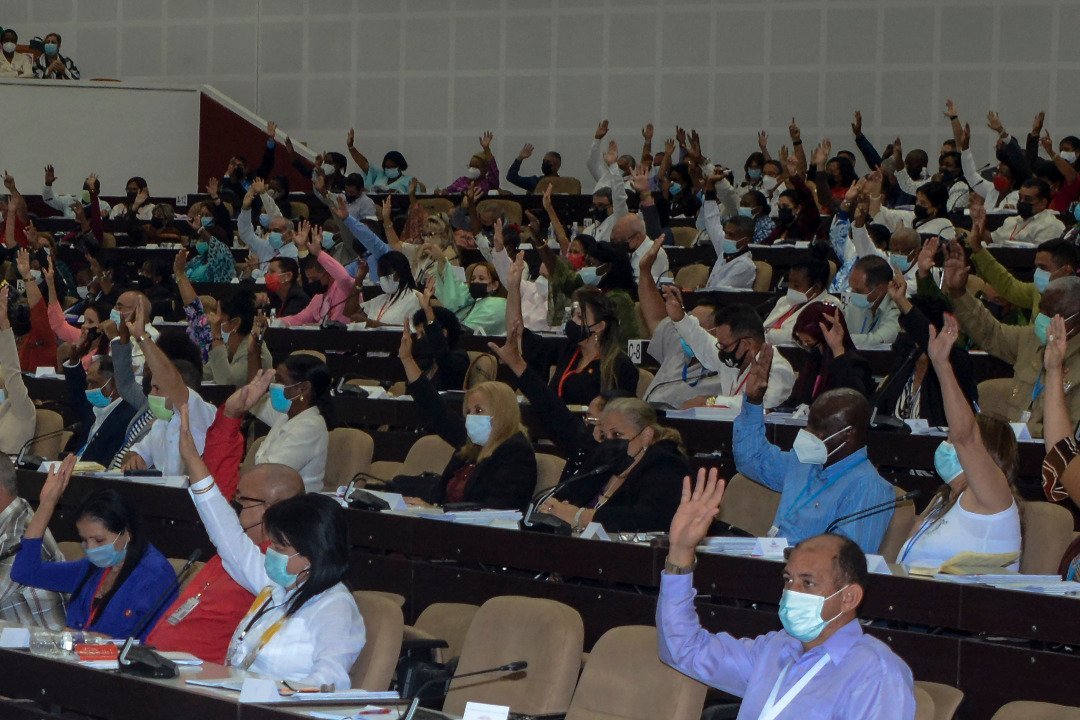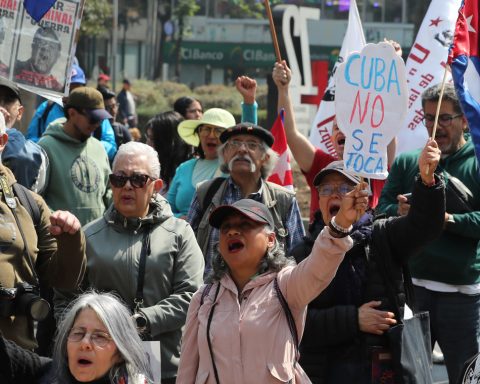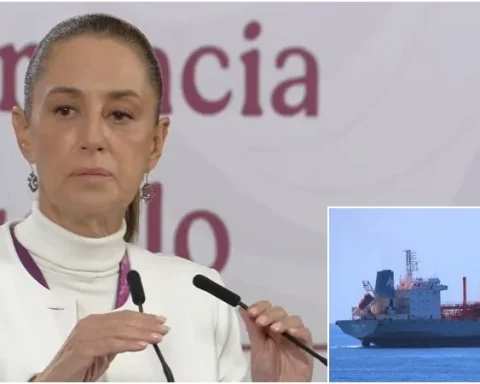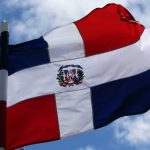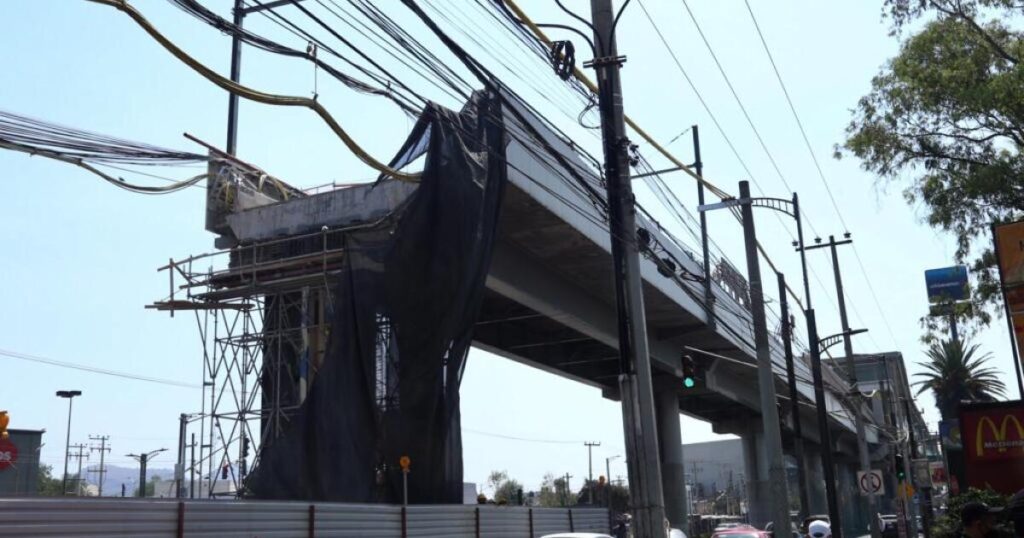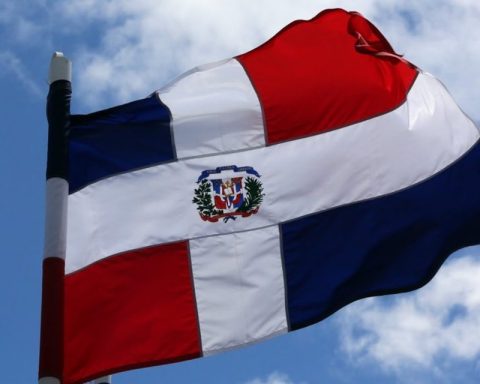The National Assembly of Cuba approved this Sunday a new Penal Code along with two other regulations, during the extraordinary sessions that take place this weekend.
The new Code – approved unanimously almost a year after the anti-government protests of July 2021 – will enter into force within 90 days from its publication in the Official Gazette of the Republic, the agency reviews in this regard EFE.
The deputies gave their approval to the project, which includes 37 new crimes, in a session in which President Miguel-Díaz Canel and his predecessor Raúl Castro were present, and in which the Criminal Enforcement Law projects were also approved. and the Process for the Protection of Constitutional Rights.
#Cuba?? | The second day of the Fifth Extraordinary Session of the National Assembly of the #Popular powerin its IX Legislature, from the Palace of Conventions in Havana.
➡️Approved 3 new laws.
➡️The session will resume this Monday. #CubaLegisla pic.twitter.com/6mfBjecyjS— Cuban National Assembly (@AsambleaCuba) May 15, 2022
“Cuba will have a modern law, fair and tempered to the socioeconomic reality of the country,” said the president of the Supreme People’s Court (TSP), Rubén Remigio Ferro, when presenting the text of the new Penal Code that replaces the previous rule of 1987 .
Ferro explained that it is a legislation that incorporates sanctions to face discrimination in all its manifestations, gender and family violence, acts against minors or in situations of disability. In addition, it strengthens the sanctions related to corruption.
The Penal Code maintains, exceptionally, the possibility of imposing the death penalty in 23 extremely serious criminal types. However, the president of the TSP clarified that capital punishment has not been applied in Cuba since 2003 and that the island’s government commuted those that were pending in 2008.
The document also maintains the requirement of criminal responsibility from the age of 16.
It also provides for punishing with up to 10 years in prison any person who “supports, encourages, finances, provides, receives or has in his possession funds, material or financial resources” from non-governmental organizations or international institutions that can be used to “defray activities against the State and its constitutional order”, specifies EFE.
The agency echoes the discontent of activists and opponents, who consider that this reform seeks to silence social protest and independent journalism on the island. At the same time, it affirms that, on the other hand, the promoters of the project describe it as “guaranteeing » and updating, since the previous one did not contemplate environmental crimes, cybercrime and gender violence.
“The Assembly of Cuba approves the new Criminal Code Law, a necessary and irreplaceable document for the nation, tempered to the reality of #Cuba and in line with the most modern in the world,” said a message from the Presidency of the Republic on Twitter .
The @AsambleaCuba approves a new Criminal Code Law, a necessary and irreplaceable document for the nation, tempered to the reality of #Cuba and in line with the most modern in the world.
? It’s fair, educational and modern. pic.twitter.com/4J4hie53Hy
— Cuba Presidency ?? (@PresidenciaCuba) May 15, 2022
As for the other two approved laws, Ferro explained that the Criminal Enforcement “concentrates in a single legal body the hitherto scattered regulations related to the phase of execution of sanctions and security measures,” refers the website Cubadebate.
According to that publication, the regulation “develops the guarantees of the rights of persons deprived of liberty, provided for in article 60 of the Magna Carta” and in it, among other aspects, “the principles, rights, duties and guarantees that They govern the fulfillment of the precautionary measure of provisional prison, criminal sanctions and post-criminal security measures.
For its part, the Law on the Process of Protection of Constitutional Rights “establishes a ‘preferential, expeditious and concentrated’ procedure for the knowledge by the courts of the damages suffered by people, originated by the organs of the State, its directors , officials and employees or by non-state entities, ”specifies the source.
It details that “the rights recognized in the Constitution that do not have a means of defense in judicial processes of another matter and that have been or are being violated from the entry into force of the Magna Carta may be claimed.”
On the other hand, “you cannot claim in matters of national security and defense, nor against the measures ordered in exceptional situations, against normative provisions (legal norms) or against judicial decisions adopted in other processes,” he clarifies. Cubadebate.
The sessions of the National Assembly will continue this Monday in Havana.
EFE / OnCuba
